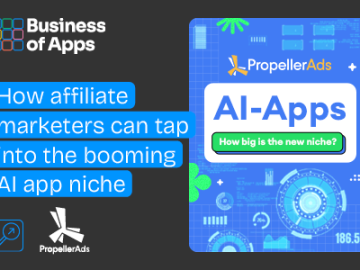As the seasonal retail shopping surge approaches, with Black November dominating the shopping landscape, e-commerce brands are increasingly turning to artificial intelligence (AI) to help them attract the sought-after Gen Z consumer.
Born into a digital world, this generation is characterised by its unique shopping behaviour, values and preferences.
To effectively engage them during one of the busiest shopping periods of the year, brands and marketers would do well to leverage AI’s capabilities in all facets of e-commerce including analytics, personalisation, customer insights, and operational efficiency. In fact, this could very well give you the edge over your competitors.
In the US today, Generation Z consumers hold $360 million spending power, even though only half of this generation (born between 1997 and 2012) has reached adulthood. By 2030, this growing consumer force will amass almost $13 trillion in spending power worldwide. Enough reason indeed to pay attention to this generation of spenders.
Effective analytics
Marketers who make their decisions by analysing the business data ahead of time to ensure that their customers find what they need both in-store and online, will find that they are streets ahead this year.
In fact, it’s essential to make decisions based on actionable insights to ensure that your business is well prepared for spikes like Black Friday and the festive season.
Predictive analytics for trend spotting
This is the time of year when e-commerce sites need to drive as much traffic to their sites as possible – and then convert. This requires investment and an understanding of what is holding their site back from performing at its best.
By utilising predictive analytics, businesses can anticipate which products are likely to be popular based on historical data, social media trends, and emerging cultural phenomena. AI’s ability to analyse trends and forecast demand can be a critical advantage for e-commerce brands and, in fact, any business with an e-commerce site – that target Gen Z during the seasonal rush.
For example, if AI identifies a rising trend in sustainable fashion among Gen Z, brands can adjust their inventory and marketing strategies accordingly, to include items made from natural and organic materials, such as wool, linen, and cotton, grown and harvested without harming the environment.
This is a proactive approach that will not only endear your brand to the fashion conscious Gen Z consumer, it will also position it as relevant and responsive to their values – which may very well convert them into a loyal customer.
Understanding Gen Z’s shopping habits
Gen Z’s desire for high-quality and unique products has a huge influence on their shopping habits. This is according to the latest Nielsen report. While they are willing to pay a premium for items that meet their standards of quality and ethics, they are also savvy shoppers who hunt for the best deals and value for money.
Gen Zs are known for their tech-savvy and strong inclination toward authenticity and social responsibility. These digital natives are discerning consumers who prioritize experiences over products and choose brands that align with their values.
As they come of age, their influence on retail becomes more and more apparent, making it imperative for e-commerce businesses to adapt their strategies to meet their needs.
Personalised shopping experiences
AI can play a pivotal role in personalising the shopping experience for Gen Z. Through data analysis and machine learning algorithms, e-commerce platforms can gather vast amounts of information about consumer behaviour, preferences, and trends. This data allows brands to create highly tailored shopping experiences.
For example, AI can power recommendation engines that suggest products based on past purchases and browsing behaviour. During the high-stakes shopping season of Black November, personalised recommendations can significantly enhance conversion rates.
Brands can also implement chatbots that provide instant support and personalised product suggestions, to fulfil on Gen Z’s expectations of immediate, on-demand service.
Enhancing customer engagement
Social media is a major stop on Gen Z’s shopping journey. Here too AI tools can enhance engagement by analysing social media interactions of this digital generation to inform content strategy and advertising.
Brands can use AI to identify the types of content that resonate most with their audience, enabling them to craft compelling narratives that align with Gen Z’s values, such as inclusivity, social sensitivity and environmental sustainability.
AI can automate social media management, allowing brands to maintain a consistent online presence, engage with their followers, and respond to comments and inquiries in real time. This level of engagement can have a massive influence on brand loyalty and encourage Gen Z consumers to choose your brand if it reflects their values and identities.
Ensuring delivery meets expectations
When it comes to logistical operations, AI can play a vital part in ensuring delivery is made on time, every time – which is a key differentiator for the Gen Z consumer – who expects fast, reliable delivery whether by road, rail or shipping. Brands that deliver on this promise are much more likely to win and keep their loyalty.
Ethical considerations and transparency
Brands that navigate the use of AI ethically, in particular when targeting the socially conscious Gen Z, will reap the rewards. Especially when it comes to transparency in data collection and usage. Brands would do well to communicate clearly how they use AI to enhance the shopping experience while respecting consumer privacy.
In conclusion, embracing AI is not just a technological upgrade; it is a strategic necessity for brands aiming to thrive in the dynamic world of e-commerce.
Sarah Utermark is country director of MMA South Africa. She was previously director of brand and partnerships at Opera. She graduated from the University of Gloucestershire with a Bachelor of Science in sports science and marketing management.





